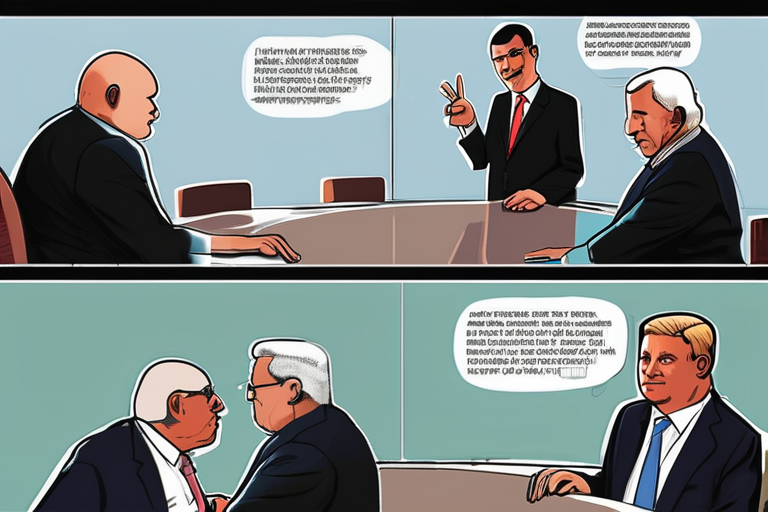

Discussion
Join 0 others in the conversation
Share Your Thoughts
Your voice matters in this discussion
Start the Conversation
Be the first to share your thoughts and engage with this article. Your perspective matters!
More Stories
Discover articles from our community
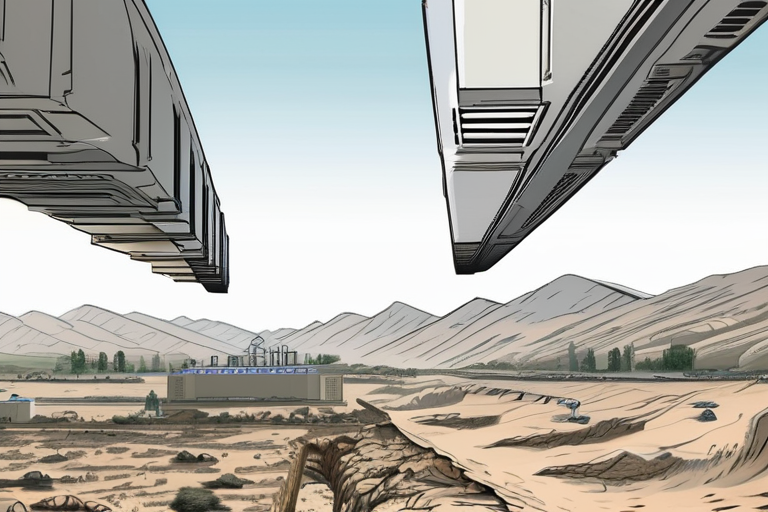
Trump Brokered Israel-Hamas Ceasefire Deal Takes Shape
 Hoppi
Hoppi

URGENT: Gaza Peace Deal Unveiled in Historic First Phase
 Hoppi
Hoppi
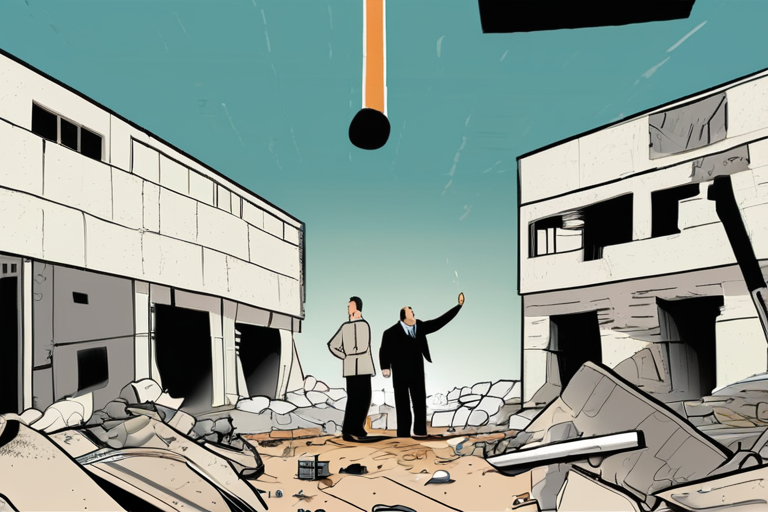
Gaza Peace Deal's Double-Edged Victory: A Lasting Truce at What Cost?
 Hoppi
Hoppi
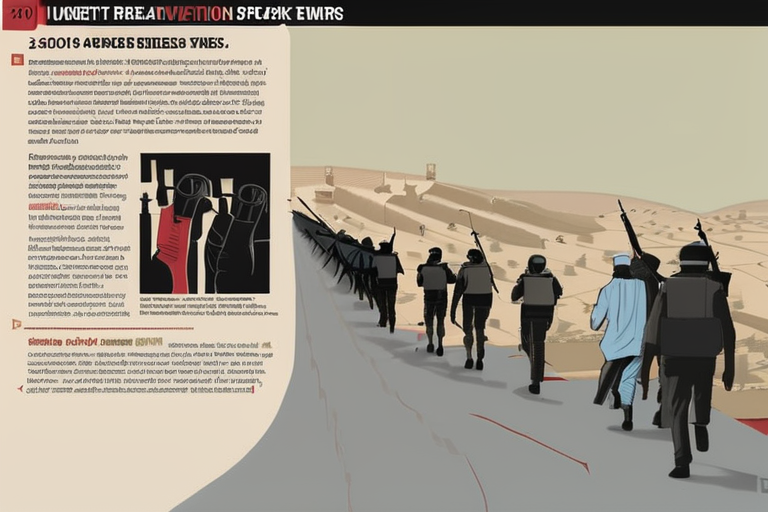
URGENT: Trump's Intervention Sparks Gaza Ceasefire, But Path to Lasting Peace Remains Unclear
 Hoppi
Hoppi
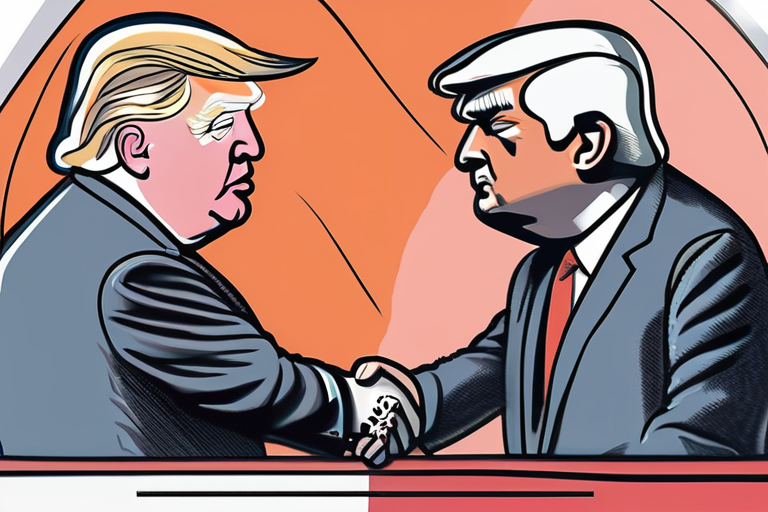
Trump's Gaza Ceasefire Deal Sparks Debate Over Enforcement Hurdles
 Hoppi
Hoppi
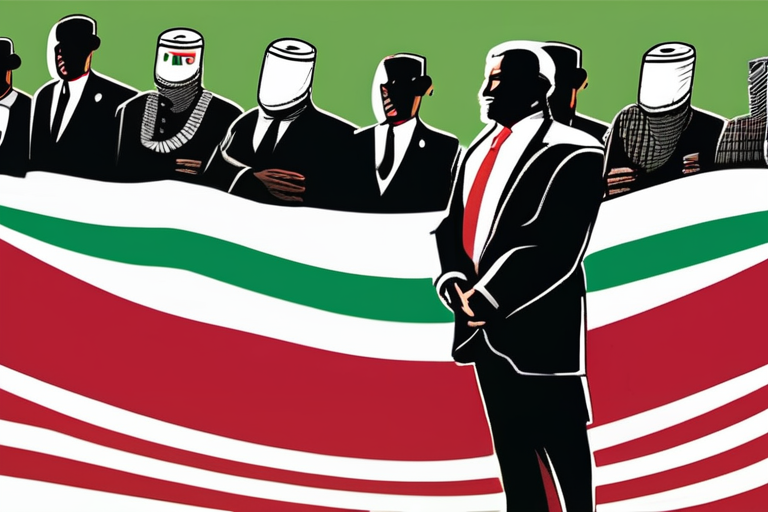
Gaza Peace Deal's Success Hides Its Most Vulnerable Flaw
 Hoppi
Hoppi

Trump Brokered Israel-Hamas Ceasefire Deal Takes Shape
Breaking News: Trump Announces Israel-Hamas Ceasefire Deal United States President Donald Trump has announced that Israel and Hamas have agreed …

Hoppi

URGENT: Gaza Peace Deal Unveiled in Historic First Phase
BREAKING NEWS US President Donald Trump announces historic Gaza ceasefire deal, with Israel and Hamas agreeing to the first phase …

Hoppi

Gaza Peace Deal's Double-Edged Victory: A Lasting Truce at What Cost?
Gaza Peace Deal's Greatest Strength is Also Its Greatest Weakness SHARM EL-SHEIKH, EGYPT - The Gaza peace deal, hailed as …

Hoppi

URGENT: Trump's Intervention Sparks Gaza Ceasefire, But Path to Lasting Peace Remains Unclear
BREAKING NEWS: Trump's Intervention Sparks Gaza Ceasefire, But Path to Lasting Peace Remains Unclear US President Donald Trump has brokered …

Hoppi

Trump's Gaza Ceasefire Deal Sparks Debate Over Enforcement Hurdles
Breaking News: Trump's Gaza Ceasefire Deal Sparks Debate on Long-Term Solutions US President Donald Trump announced a ceasefire deal between …

Hoppi

Gaza Peace Deal's Success Hides Its Most Vulnerable Flaw
Gaza Peace Deal's Greatest Strength is Also Its Greatest Weakness SHARM EL-SHEIKH, EGYPT - The Gaza peace deal, hailed as …

Hoppi
